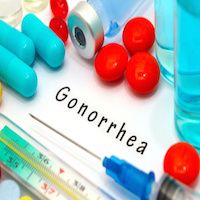Antibiotic Resistance a Harsh Reality for Gonorrhea Patients
A new CDC study revealed that gonorrhea is on the verge of developing resistance to the most commonly recommended antibiotic treatments – oral azithromycin and single-injection ceftriaxone.

A new CDC study revealed that gonorrhea is on the verge of developing resistance to the most commonly recommended antibiotic treatments — oral azithromycin and single-injection ceftriaxone.
According to a recent survey, gonorrhea is the most prevalent STD in the US, especially among 15-24 year-olds.
While researchers are unclear whether antibiotic-resistant gonorrhea is a temporary trend or the start of a much stronger venereal disease, they are sure the emergence of gonorrhea resistance to both drugs would significantly complicate gonorrhea treatment.
Findings from the CDC’s surveillance system of 5,093 gonorrhea isolates indicated the percentage of the isolates showing weaker response to azithromycin had risen by over 400% between 2013 and 2014.
Researchers also found that 25% of the isolates were resistant to tetracycline, 19% resistant to ciproflaxin, and 16% were resistant to penicillin.
The CDC reported the combination therapy “still works,” but there is a “distressing sign that the future of current treatment options may be in jeopardy.”
Jonathan Mermin, MD, director of the CDC’s National Center for HIV/AIDs, Viral Hepatitis, STD, and Tuberculosis Prevention, said in a news release, “The confluence of emerging drug resistance and very limited alternative options for treatment creates a perfect storm for future gonorrhea treatment failure in the US. History shows us that bacteria will find a way to outlast the antibiotics we’re using to treat it. We are running just one step ahead in order to preserve the remaining treatment option for as long as possible.”
Experts shared assistance was needed to ensure a widespread reach of successful treatment. Earlier this year, Congress approved $160 million in extra funds for the CDC to implement its role in National Strategy for Combating Antibiotic-Resistant Bacteria, which outlines methods to mitigate the spread of antibiotic-resistant pathogens like gonorrhea.